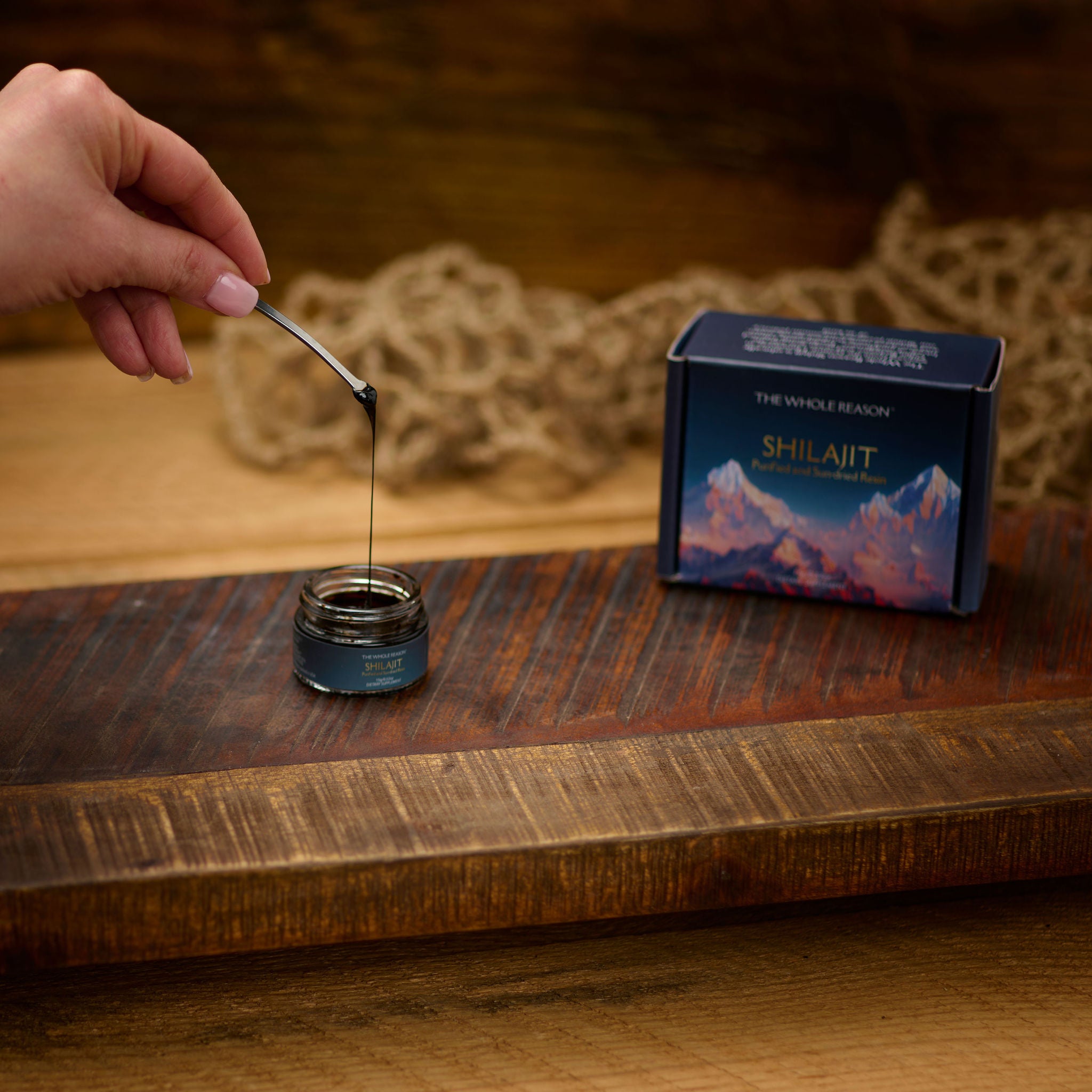
The Whole Reason™ Shilajit resin is sourced and packed in small batches to guarantee freshness and traceability.
Our Shilajit is tested by an independent ISO-17025 certified laboratory in the US for presence of heavy metals, microbiological contaminants and a range of pesticides.
Click below to view lab test report of our most recent Shilajit batch.
View ISO-17025 certification of the third-party lab here.

The Whole Reason™ Shilajit Gummies are made with 100% sun-dried Himalayan Shilajit resin and crafted in small batches for freshness, consistency, and quality. Each gummy batch is tested by an independent ISO-17025 certified laboratory in the US for heavy metals and microbial contaminants.
Click below to view the lab test report for our latest gummy batch.
OUR COMMITMENT TO SAFETY AND PURITY
We test every batch of all our products at an ISO-17025 certified third-party laboratory in the US. A sample from each batch goes through identification test, heavy metals test, microbiological contaminants test and aluminium test before it lands in our customer's hands.
We use California proposition 65 standards for heavy metals as specifications for our test results. These are the strictest and most rigid standards of the naturally occurring heavy metals within USA and across the globe. It should be noted that in virtually every instance, the threshold amounts of these chemicals set by Prop 65 are 1/10th to 1/15th the levels set by international organizations and the US FDA. These amounts are so low that many healthy fruits and vegetables such as yams, turnips, apples, tomatoes, carrots, cucumbers, green beans, lettuce, spinach, potatoes, corn and many other fruits and vegetables would not pass the Prop 65 guidelines. Since foods are exempted from Prop 65, they do not need to carry a warning label. However once a food or herb leaves its natural state it become subject to Prop 65 for good.






Purified and Sun-dried Himalayan Shilajit Resin 15g
- Regular price
-
$59.00 - Regular price
-
$69.00 - Sale price
-
$59.00







